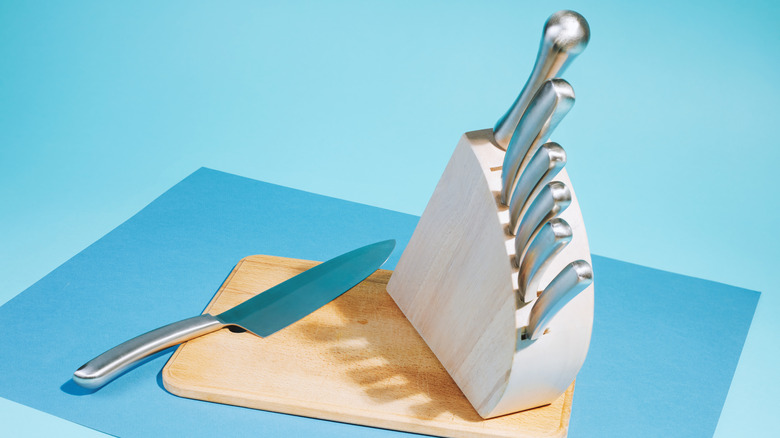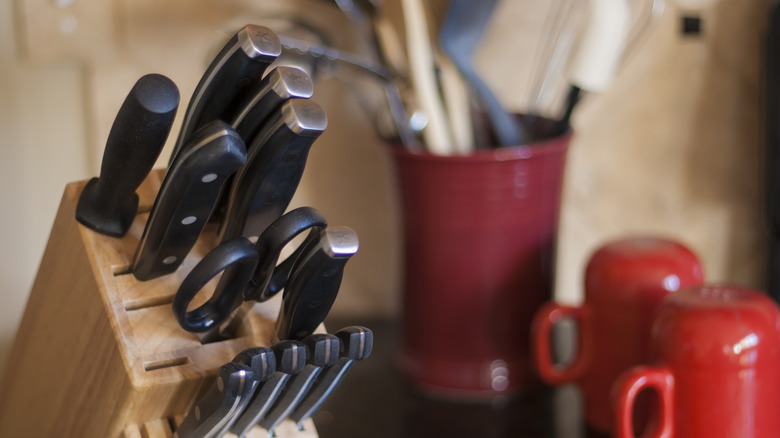The Best Way To Clean Your Wooden Knife Block
We may receive a commission on purchases made from links.
The kitchen knife is perhaps the most useful and versatile tool in a home chef's arsenal. How else are you going to butterfly a thick pork chop, dice mirepoix, or utilize Martha Stewart's double-knife chopping trick to make quick work of fresh herbs? For durability and safe storage, one great place to stash your knives when not in use is a wooden knife block. Cleaning one of these beasts, however, can prove tricky. Foodie spoke to Timo Horl, founder and CEO of HORL knife sharpeners, to get the lowdown on keeping knife blocks sanitary.
"The best way to clean a classic wooden knife block is to wipe it down with a damp cloth and then dry it thoroughly," Horl explains, while noting that submersion in water is generally a poor idea because the moisture can warp wood. Got a knife block sporting lots of fussy carved details? Take a little extra time. "Use a soft brush to reach into crevices," he suggests.
Picking the right wood for your knife block is also a great way to ensure that future cleaning is a success. "Bamboo blocks, for example, usually tolerate slightly more moisture than conventional hardwood," says Horl. Meanwhile, "the tannic acid in oak wood has great antibacterial properties that can help to improve hygiene in your kitchen, too." No matter what wood you end up with, a periodic rub-down with food-safe oil is also smart, as this will condition the wood and keep it looking great.
Why use a knife block anyway?
With all the hassle of cleaning them, you may be wondering what all the knife storage hubbub is about in the first place. Why not just stick them in a drawer like any other handheld utensil? "Proper knife storage is essential for maintaining blades in good condition for several reasons," Horl tells us. Whether you have a cheap set of knives from a big-box store or a fancy Wüstof blade (Ina Garten's favorite knife brand), keeping the sharp edges of knives from touching each other or anything else will help protect the edge and maintain sharpness. While you're wondering how often you should sharpen kitchen knives, know also that proper storage (like in a knife block!) will help maintain that razor-like edge and prevent superficial scratches or even gouging. Sharp knives are safer knives, as backward as that may sound. A sharp blade will cut cleanly through food without requiring hacking, while a dull knife can skid and skip, making it a clear danger to its user.
There's also the fact, Horl reasons, that proper storage of knives can help them go the distance ... and potentially even outlast their owner. "A well-cared-for knife can remain sharp and functional for years or even a lifetime, making it a worthwhile kitchen investment," he says. In a way, your knife block is protecting the hard-earned money you spent on your knives, so keep it nice and clean! We especially like the Cook N Home bamboo knife storage block.

